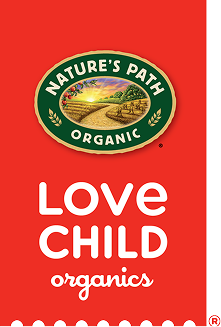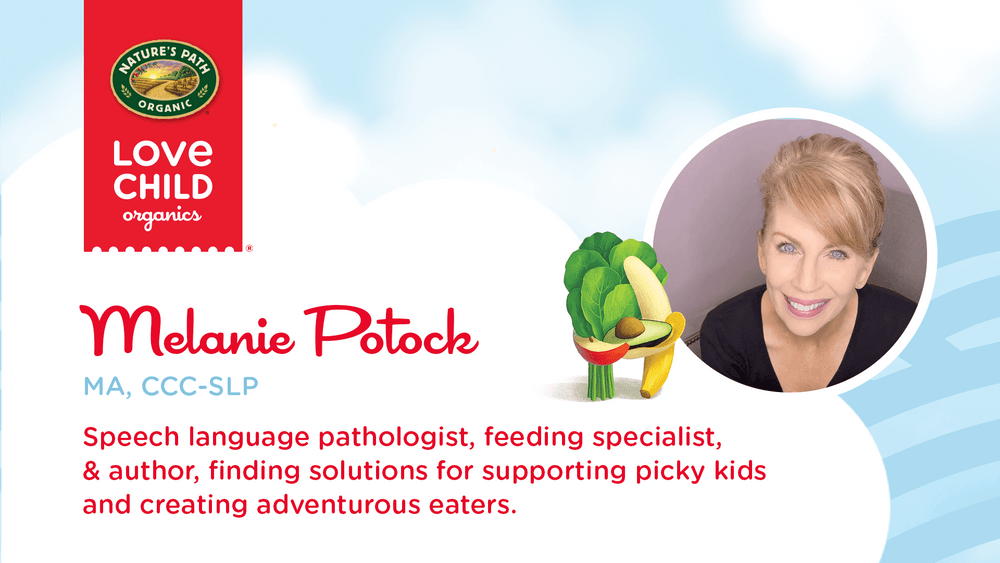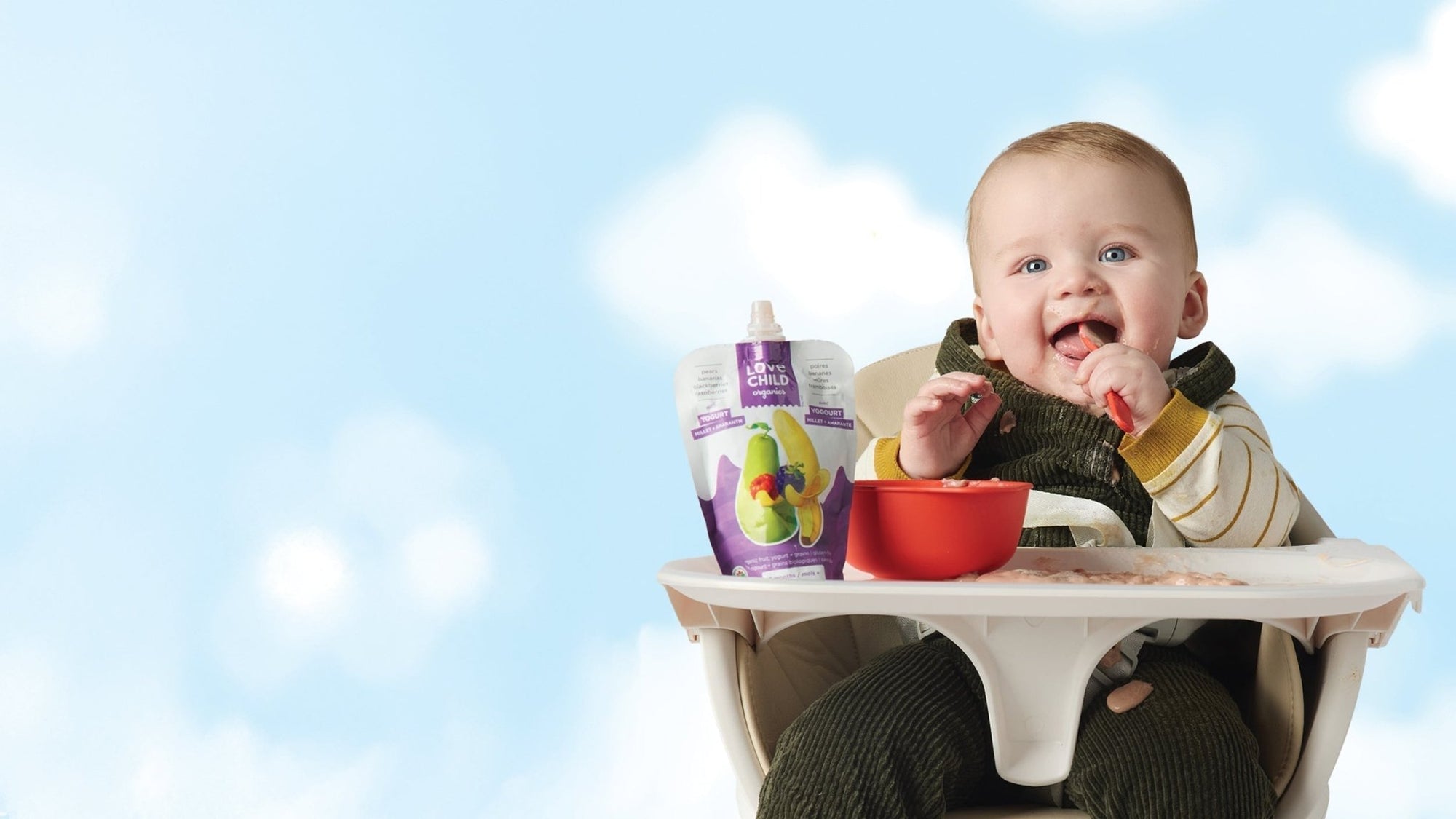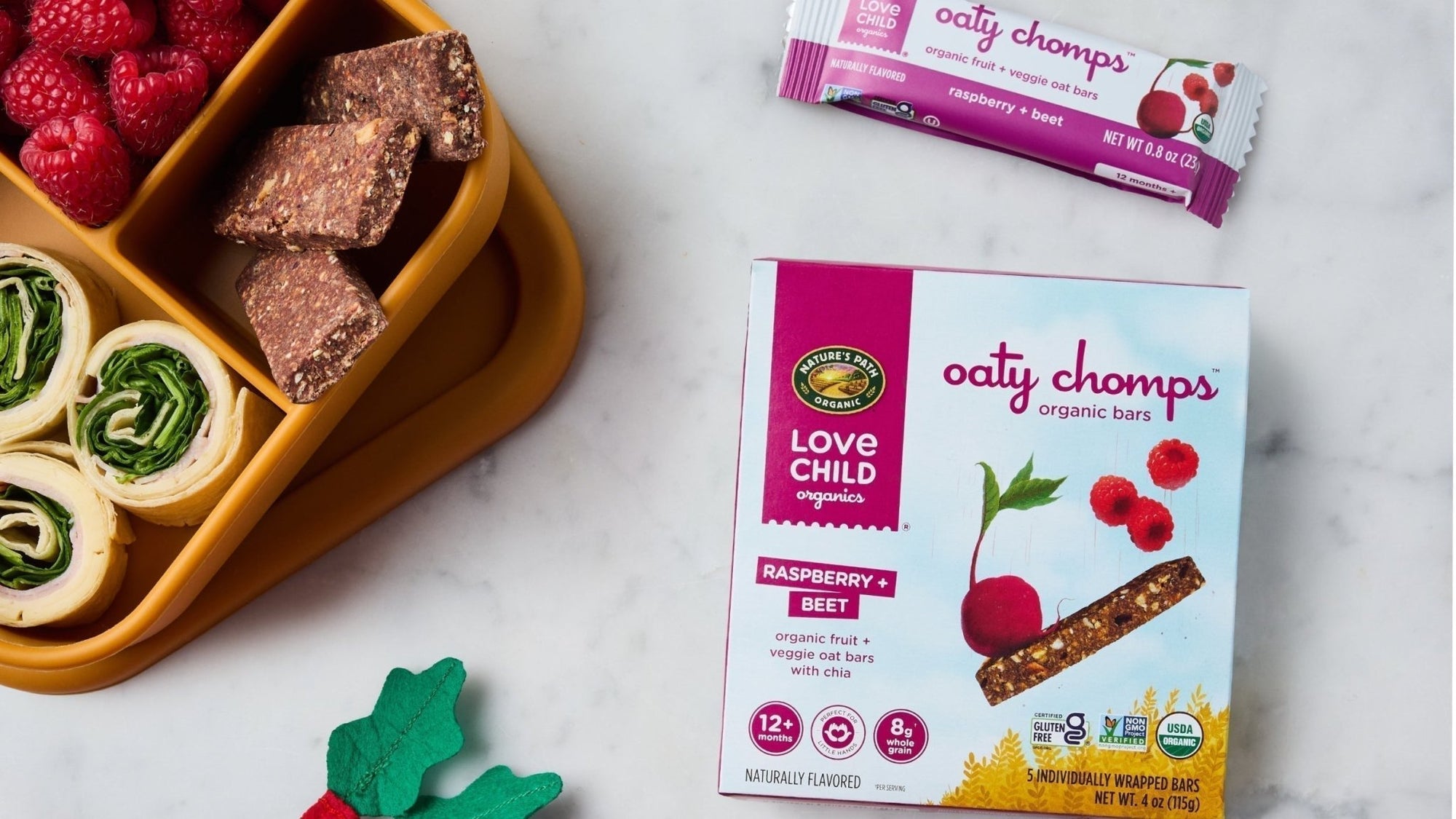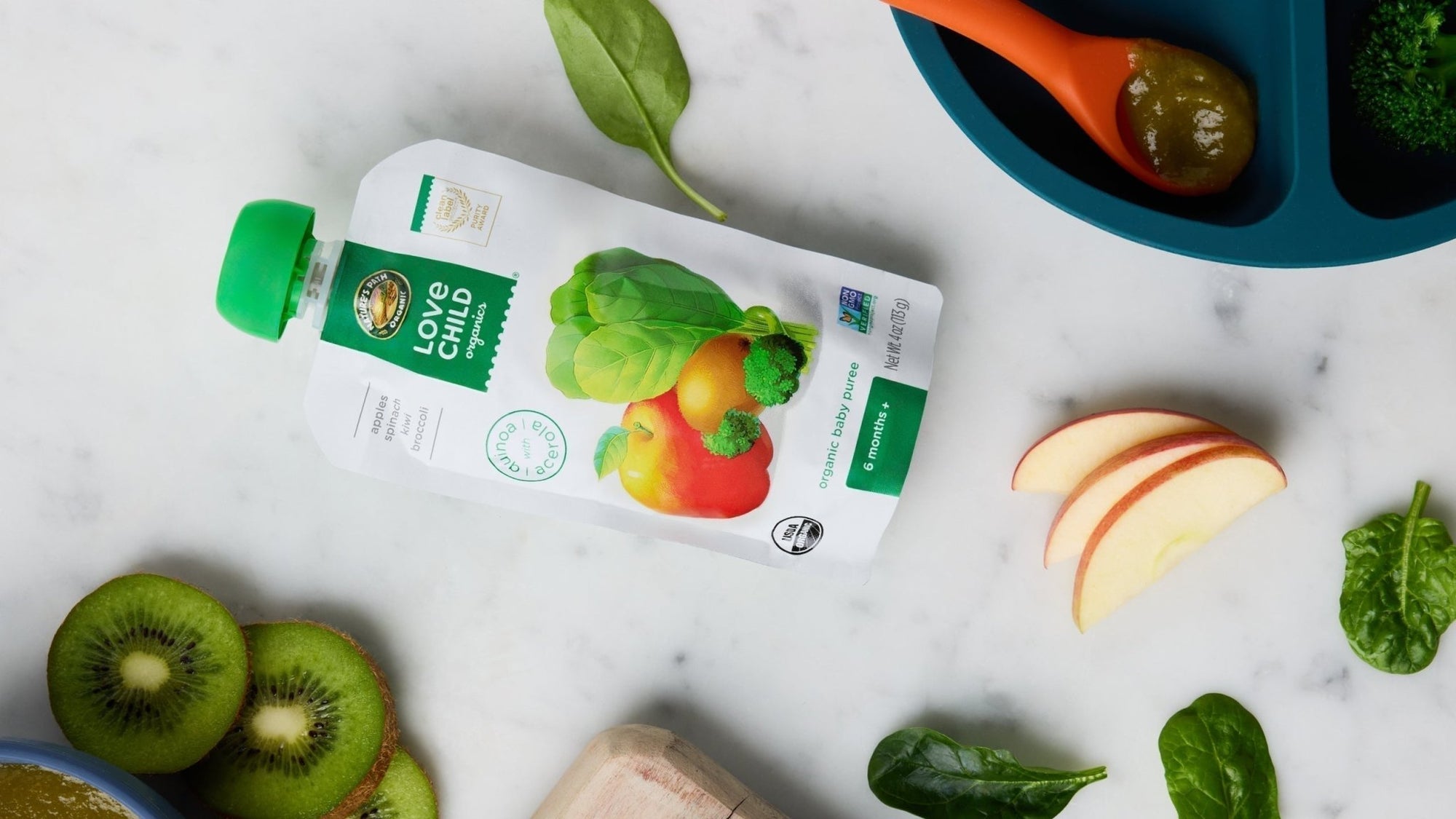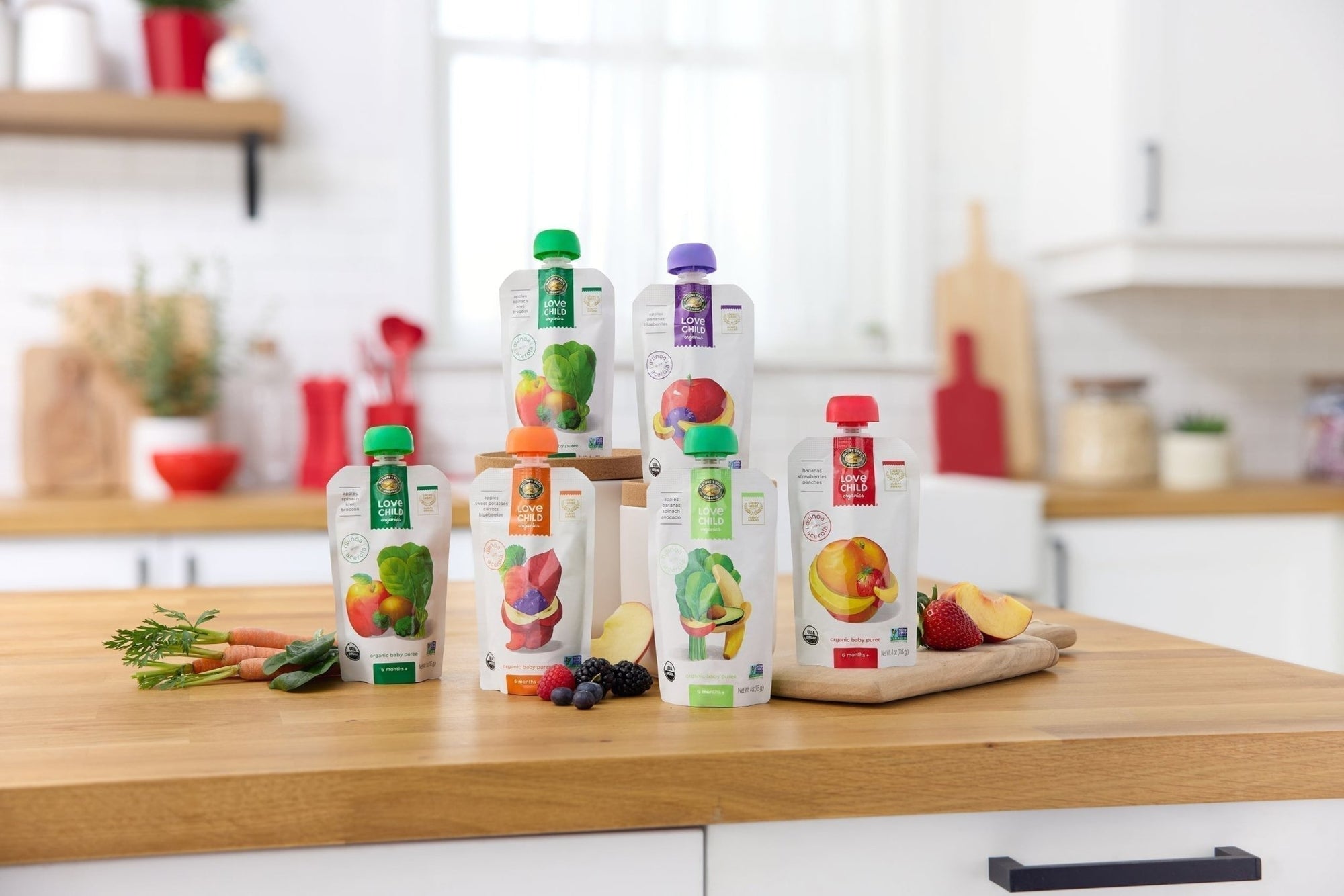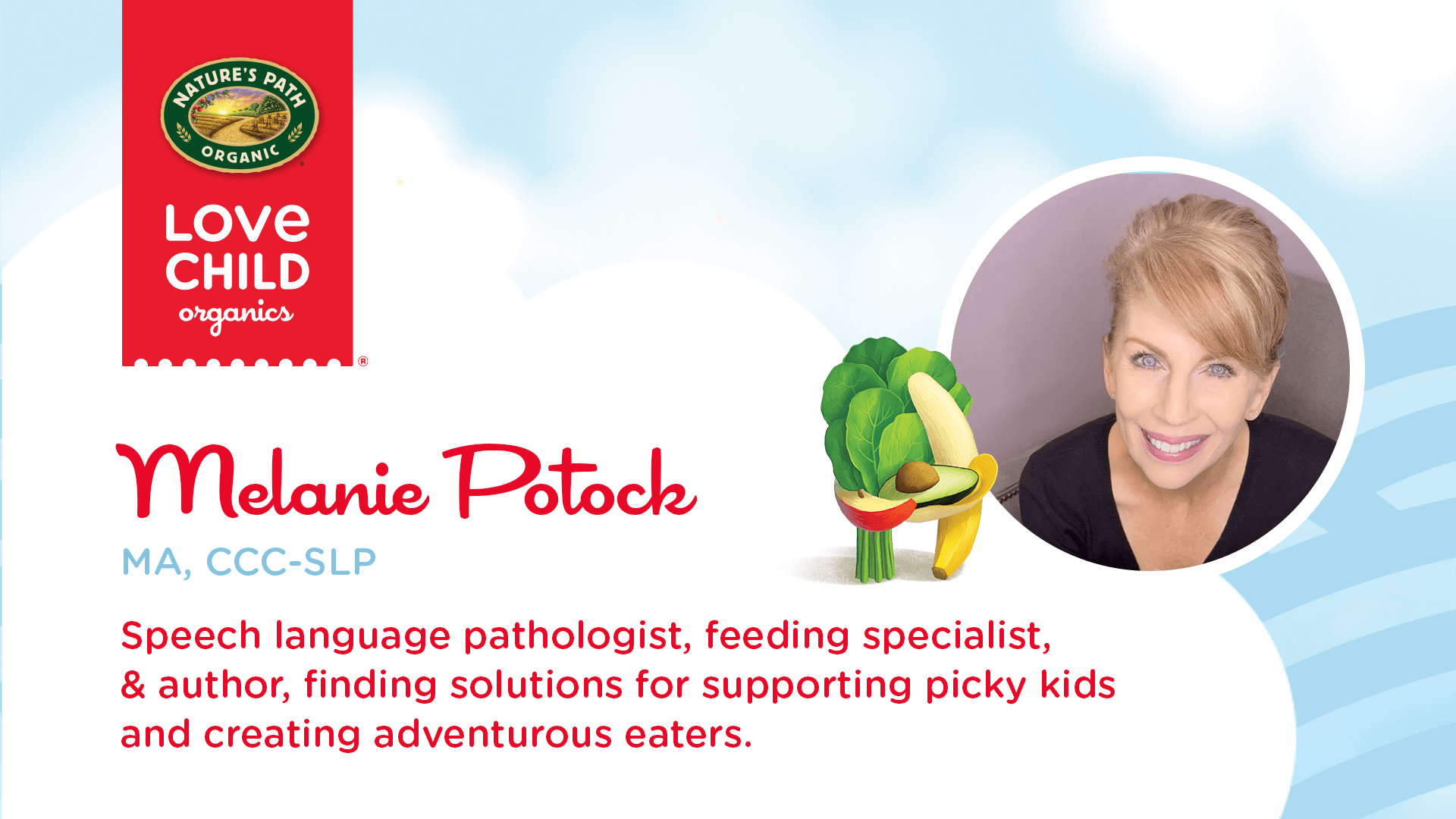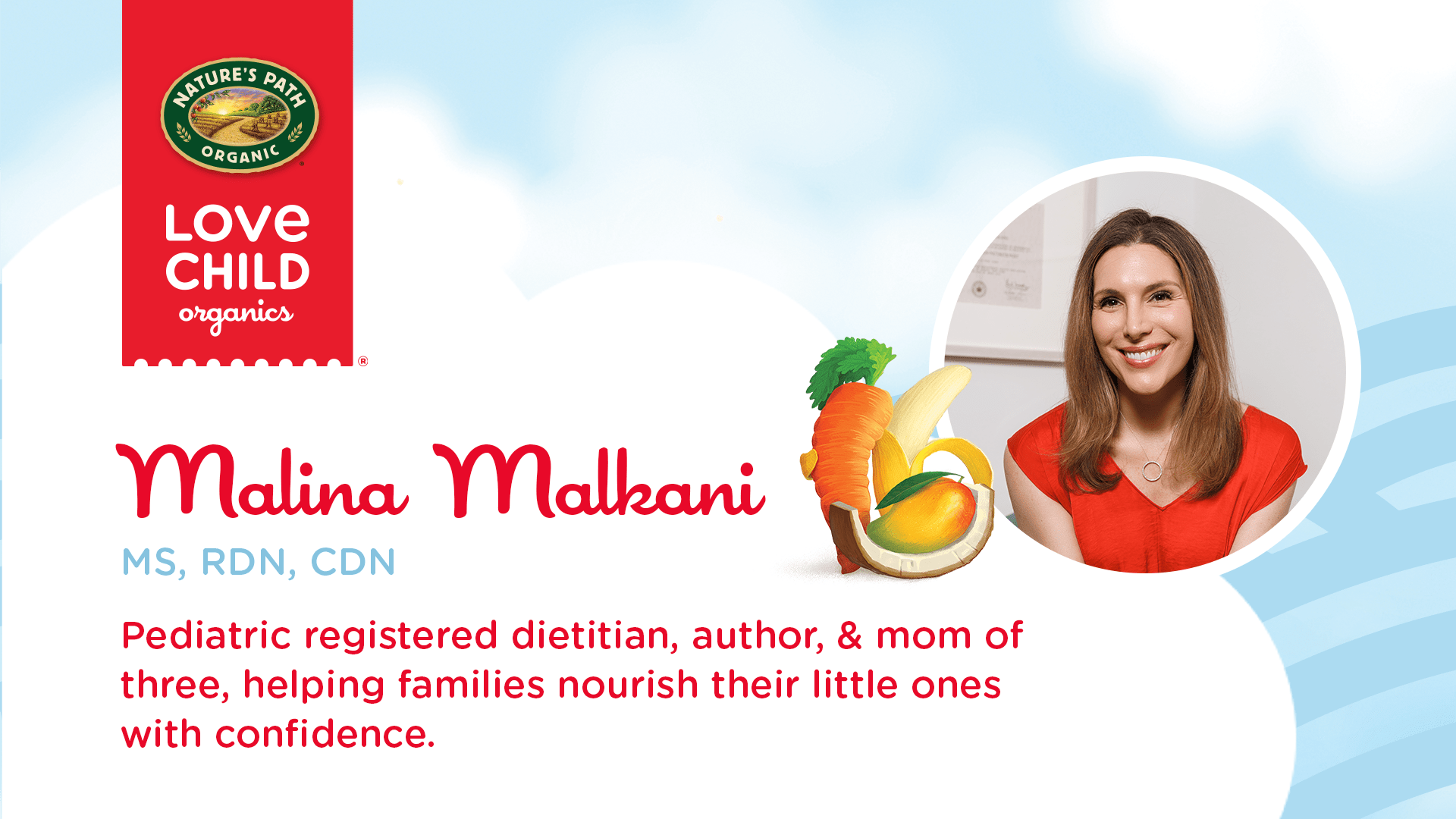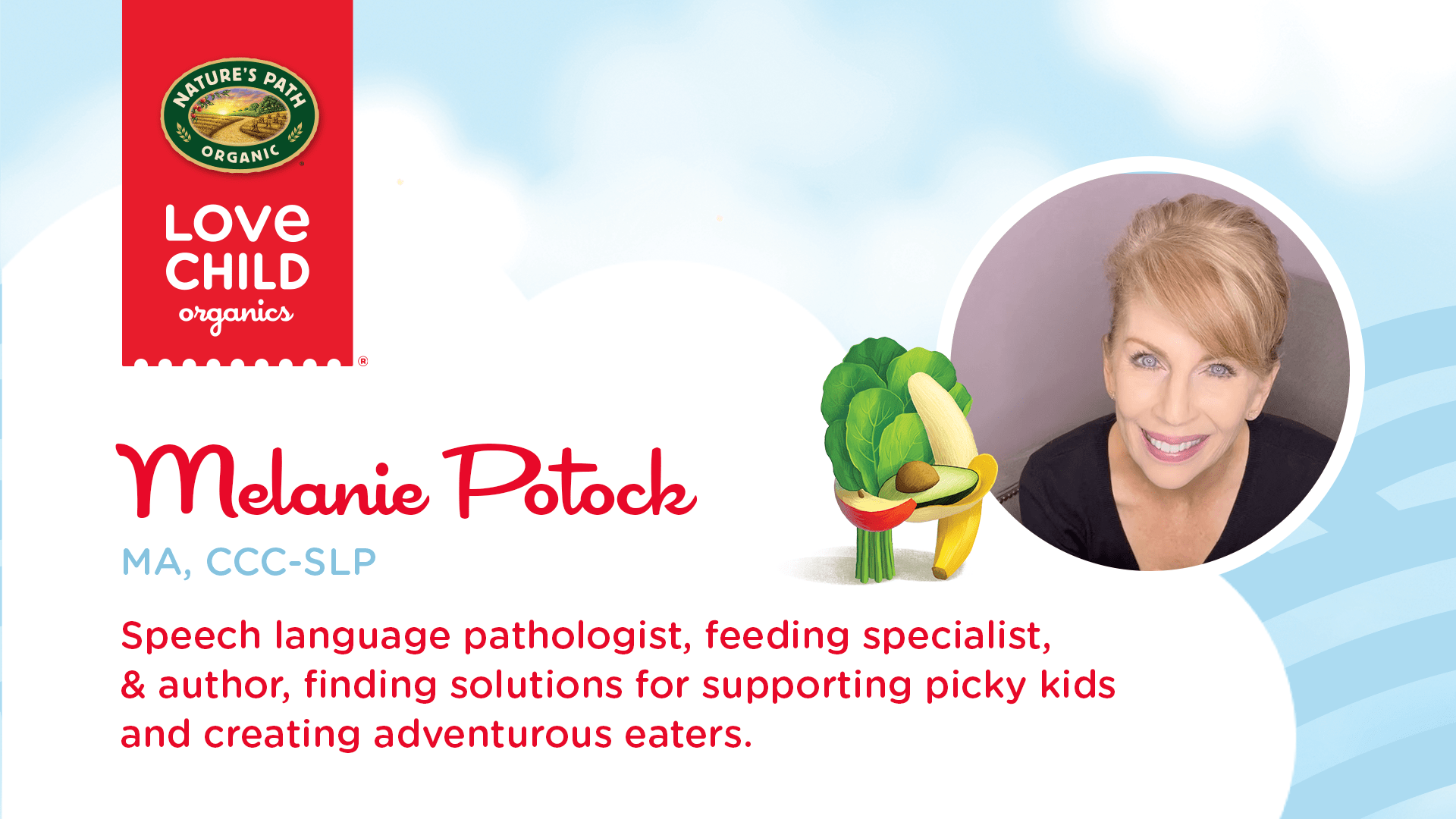
Raising Healthy, Happy Eaters: Expert Tips from Melanie Potock, MA, CCC-SLP
Hello! My name is Melanie Potock and I am here to help you feel supported and confident in nurturing a healthy, happy eater! I’d love to give you a little bit of background and then let’s dive into a few feeding tips too.
My career as a pediatric feeding specialist started with my own personal journey of raising two little girls who were each very different types of eaters. Our first child was very adventurous and the second quite picky, especially as a toddler. I wondered, how could two kids, raised in the same household, be so dissimilar in their willingness to try new foods? I am so grateful for that life experience because it sparked my passion for helping parents navigate their child’s unique feeding journey, especially if they need extra support via feeding therapy. Fast forward to today, and I am proud to be an expert on the Love Child Organics team to provide strategies from my books, the courses I teach, and the lessons I have learned after 25+ years treating babies, toddlers and big kids who may be hesitant to try new foods.
My role on the Love Child Organics’ team includes providing you with feeding advice that is evidence-based yet easy to include in your daily routines. I was honored to be asked to join the team, and the first tip I shared with them (and now with you) is this: “Feeding is Developmental, just like learning to crawl, then walk, and then run.” For some babies and toddlers, it comes very easily. For others, they need little ‘boosts” of encouragement along the way so that they don’t avoid trying new, nutritious foods and find mealtimes to be stressful. Eating with your child should be a joyful experience! The Love Child Organics’ team believes this wholeheartedly, and strives to create products that are delicious, nutritious and developmentally appropriate.
How to Raise a Healthy, Happy Eater: Where to Start
I know for sure that no two kids have the exact same feeding journey, but the consistent thread I see in my practice is the ultimate stress that a child’s hesitant eating has on both the child and the family. Picky eating and feeding challenges are more common than you may realize, especially in babies and toddlers. In fact, one out of four typically developing young children will develop a pediatric feeding disorder, where they have difficulty exploring, biting, chewing and/or swallowing new foods and will often require feeding therapy to meet their developmental feeding milestones.
Raising adventurous eaters starts with Responsive Feeding, which is very similar to the philosophy that my friend and fellow Love Child Organics expert Malina Malkani describes in her recent post. As a speech language pathologist, I am here to not only provide education on feeding skills, but also to share tips regarding babies’ communication skills, especially at mealtimes. There is an art of interpreting a baby’s cues when they first start solids, and many nuances to reading their communication attempts as they develop speech and language during the toddler years. Responsive Feeding, in short, means that you, as the caregiver, watches for and respects your child’s cues that signal when they are A) hungry and ready to eat, B) still a bit hungry and just need a short pause, and C) full and ready to stop. It’s crucial for raising an intuitive eater. It’s good to know that Responsive Feeding is endorsed by the World Health Organization, the American Academy of Pediatrics and UNICEF.
Toddlers & Picky Eating: Why I’m in Love with Love Child Organics
Shortly after baby’s first birthday, most parents report that their toddler has become fussy or picky about new foods…and why is that? It’s a natural phase that toddlers often go through, and it can last up to age three. Did you know that after your baby turns one, their growth begins to slow down and thus, their appetite does too? They are also very busy and sitting in a highchair when so many toys and activities tempting them to get down means that eating is just not always a priority for toddlers! Plus, they have likely begun to assert their independence and have learned the word “no”. That’s wonderful! Those cognitive milestones are important and contribute to your toddler’s developing sense of autonomy. But they can also create struggles at mealtimes.
Love Child Organics recognizes the cognitive, motor and behavior changes that you’ll encounter with your toddler and has created several products that are ideal (and quite tempting!) for this age. Not only are they yummy, nutritious, and made of quality ingredients, but they also support your toddler’s fine motor development, including oral motor development and mouth development. Mouth development simply means how the muscles and bones of the face develop over time throughout childhood, in conjunction with functional skills, like chewing adequately and manipulating food safely in your mouth. Two of my favorites Love Child products for toddlers include:
-
Oaty Chomps Cherry + Spinach Bars: A delicious snack sized just right to fit comfortably in a toddler’s hands, this gluten-free fruit and veggie bar also contains chia for an extra boost of nutrition. Oaty Chomps come in several other yummy flavors, too! Here’s a pro tip: Crumble the bars onto your young toddler’s plate so they can continue to develop their pincer grasp as they pick up the morsels, or show them how to use their pointer finger to press into small pieces and bring them up to their mouth. Both pointing and pincer grasp skills continue to refine over time, and this game provides more opportunities for practice! You can also roll slippery foods in the crumbs and add more “grip” to slicker foods and, that in turn decreases a toddler’s frustration and makes it more likely that they will interact with a food that’s challenging to hold. By doing so, you’re also changing the taste and texture just a bit, a terrific and subtle strategy to help them become more adventurous trying new things.
-
Love Child Superblends come in a wide variety of blended flavors of organic fruits and vegetables. Babies can begin having blended flavors during the first month they start solids, but when it comes to toddlers and picky eating, these can be a game changer! Like any food, we want to offer a variety of tastes and textures to kids, and not limit them to just one flavor of puree, bar, or cracker. This is why I recommend the flavorful Superblends and often suggest a variety of ways to serve them:
-
Pour some into a bowl and stir in tiny crumbles of an Oaty Chomp Bar. By taking two favorite tastes and textures, you’re now exposing your toddler to a brand-new food that has that comforting hint of “familiar.” Kids who are hesitant to try new foods do best when you can maintain some similarities to their favorite foods and then expand from there.
-
Pouches offer a convenient source of puree for babies to suck on, but they also offer an important experience for your baby and toddler’s sensory system beyond just their mouth. Squirt a little bit of puree onto your child’s highchair tray and let them get messy! Encourage them to dip! Babies are programmed to explore the world with first their hands and their eyes and then, their mouth. If they are hesitant to touch the puree, offer a spoon for those little hands to hold, dip and explore. By allowing them to play in the puree and perhaps suck the puree off their hands and fingers, they are experiencing new tastes and textures (and even temperatures, if you keep it in the refrigerator) with several of their senses. This is a crucial component utilized in feeding therapy that may lead to more adventurous eating in any child. Embrace the mess when you can, it will pay off in the future!
What to Do When Kids Have Trouble Eating
You know your child best, and if you sense that they are not progressing through their feeding milestones or if mealtimes are stressful, always reach out to your pediatrician and request a pediatric feeding evaluation with a qualified occupational therapist or speech language pathologist. They will assess your child’s motor skills, sensory preferences and more to determine why they are not comfortable eating a variety of foods. They may also consult with a pediatric registered dietitian to collaborate on strategies specifically designed to help your child grow and thrive, and to make mealtimes less stressful.
Here are a few of the signs that a child may need to be referred for a pediatric feeding evaluation:
-
Your child is not gaining weight or growth is faltering.
-
Your child becomes distressed when interacting with new food, refuses to sit in a highchair or demonstrates negative behaviors at mealtimes, including consistent tantrums.
-
Your child coughs frequently during or immediately after mealtimes.
-
Your child eats well at daycare or for others, but not at home, or vice versa.
-
Your child has a limited repertoire of foods that they will eat. The options may be restricted to a specific brand or too short list of favorite textures and tastes.
Happy Mealtimes for the Entire Family
Raising a child comes with so many different emotions, especially around feeding! Parents describe those feelings using heartfelt phrases like “It’s about nurturing my family” and “It’s my top priority and responsibility,” and they often tell me, “Providing nutritious food is one way I can show my love for my child.”
But feeding your family can also feel like a lot of pressure, because parents want to ensure that their kids are getting delicious, wholesome nutrition and enjoying their time together at the family mealtime table. If you have a hesitant eater, an anxious eater, or a child who perhaps has developmental or medical challenges, that may add to your own anxiety and the pressure we put on ourselves to do this perfectly. Rather than being too concerned about parenting perfectly, choose instead to parent consistently, by following tips that you’ll learn here on the Love Child Organics blog.
Feeding kids is also about creating a family culture of wellness and finding balance in the choices you offer to your children and thus, parenting mindfully. My hope for you is that the strategies and advice you find here at Love Child Organics reassures you that you’re doing a great job, to take it one day at a time, and to embrace the journey. Take lots of pictures, the messier the better, and use this precious time to connect with your kids.
I will never forget a very special moment of connection when one of my three-year-old clients said to me during feeding therapy. I was telling him about “Love Child Oaty Chomps” and offering him one to chomp on his own. He took a small bite, reflected on it, then took another and said, “I can taste the love.” His mom and I had a good laugh and replied, “We can too!”
Wishing you all the love in your feeding journey with your family!
– Melanie
AUTHOR BIO
Melanie Potock, MA, CCC-SLP, is a pediatric feeding therapist, international speaker, and certified speech-language pathologist with over two decades of experience helping children and families establish healthy relationships with food. Known as “Coach Mel” on Instagram (@mymunchbug_melaniepotock), she is the author of six books, including the award-winning Raising a Healthy Happy Eater and Responsive Feeding, and the recent recipient of ASHA’s 2024 State Clinical Achievement Award. A sought-after expert in both typical and complex feeding development, Melanie combines evidence-based strategies with real-life parenting insight. Her guidance has been featured in over 50 media outlets, including CNN and The New York Times. Certified by ASHA and licensed in Colorado, Melanie has received eight ACE awards for excellence in continuing education and provides training for healthcare professionals worldwide.
